Bramah
Joseph Bramah started out by training as a cabinet-maker. In 1784, after attending some lectures on lock making, he patented his first lock and in the same year set up the Bramah Locks Company at 124 Piccadilly, London.
Joseph Bramah was a true inventor in every sense of the word, patenting other very notable inventions like an improved flushing toilet, bank note printing press, and a hydraulic press to name but a few.
The technical achievement and level of security offered by Bramah’s ‘unpickable’ locks were considered far beyond anything presented by his peers. Joseph Bramah, in collaboration with his chief engineer, Henry Maudslay, created what he called the ‘Challenge Lock’; this padlock was displayed in Bramah’s shop window from 1790 with the notice: The artist who can make an instrument that will pick or open this lock shall receive 200 guineas the moment it is produced.
Joseph’s son, Timothy, joined the business in 1813 and prompted the name change to Bramah & Son. Joseph Bramah died in 1814, never seeing his Challenge Lock overcome.
Articles began to surface in the press about the shortcomings of some Bramah’s locks; it was stated that through an exhaustive and methodical process they could indeed be picked. Immediately responding in 1817, one of Bramah’s employees, William Russell, came up with the remedy; the addition of false notches on all the internal sliders and the locking plate. This would completely confuse any lock picker as to the correct settings within the mechanism, making it impossible for them to gain access without force… or so they thought!
Around the early 1820’s, Joseph’s other two sons, Francis and Edward, also became partners in the business, now called Bramah & Sons. They were to be later joined by Joseph’s nephew, John Joseph Bramah.
Joseph Bramah’s lock challenge remained unanswered for over 60 years, until the time of the Great Exhibition in 1851. Alfred Charles Hobbs, an American locksmith, took 51 hours, spread over 16 days to finally open the Challenge Lock. This however became the subject of great dispute and controversy, yet still resulted in Hobbs receiving the reward (approximately £30,000 in today’s money). See our page on Bramah’s Challenge Lock.
Bramah were awarded a prize medal at the Great Exhibition for their locks and castings, with a special approbation for the ‘smallness of key in proportion to size and strength of lock’.
By 1871, Bramah & Sons was in the ownership of J.T Needs & Co of 128 Piccadilly, London. In 1901, J.T Needs was bought out by the Whitfield Safe & Lock Company. Three years later the name was officially changed back to Bramah & Co, which still continues as a locksmith company to this day.
See our page on Bramah locks.
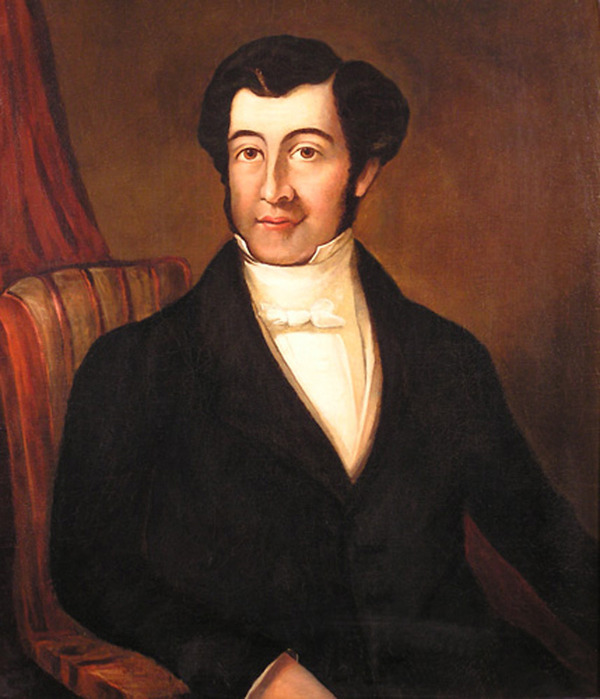
Joseph Bramah – Bramah Lock Company, 124 Piccadilly, London.
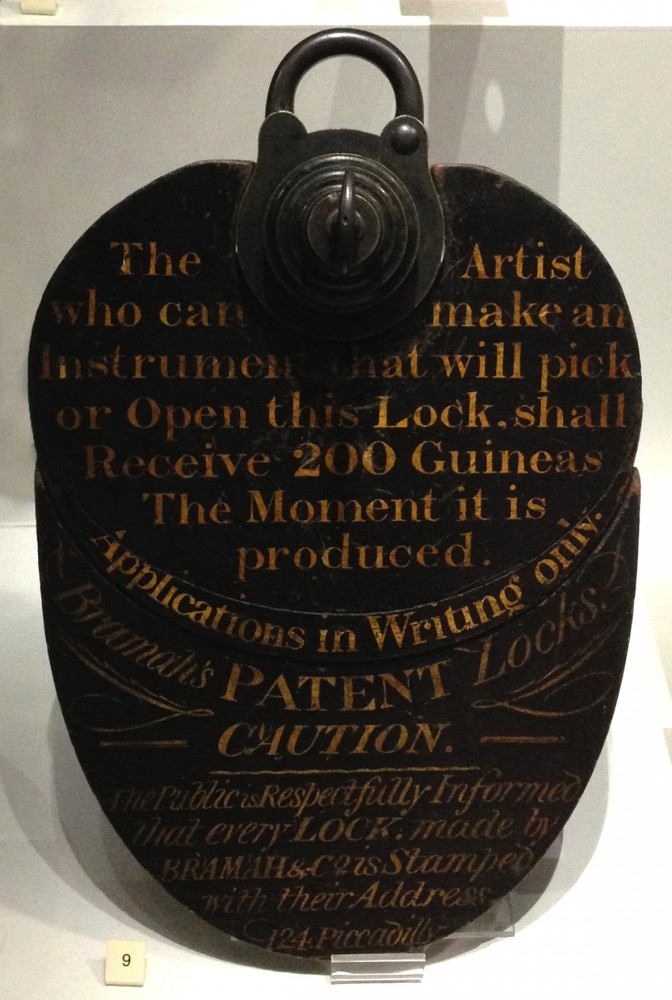
Joseph Bramah’s ‘Challenge Lock’ mounted within its challenge board, as displayed in his shop window from 1790. Now displayed at the Science Museum in London.
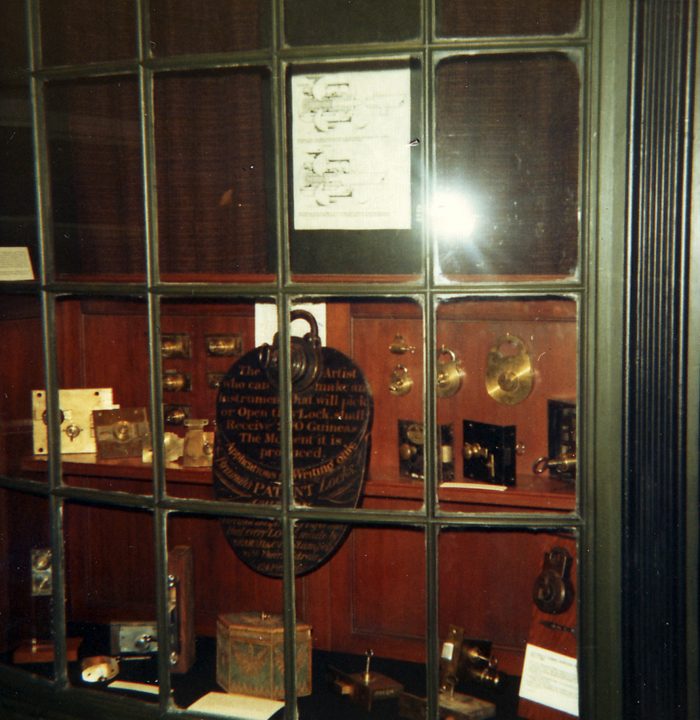
Recreation of Bramah’s shop front at 124 Picadilly, London, with the ‘Challenge Lock’ on display, taken from the Science Museum in London.
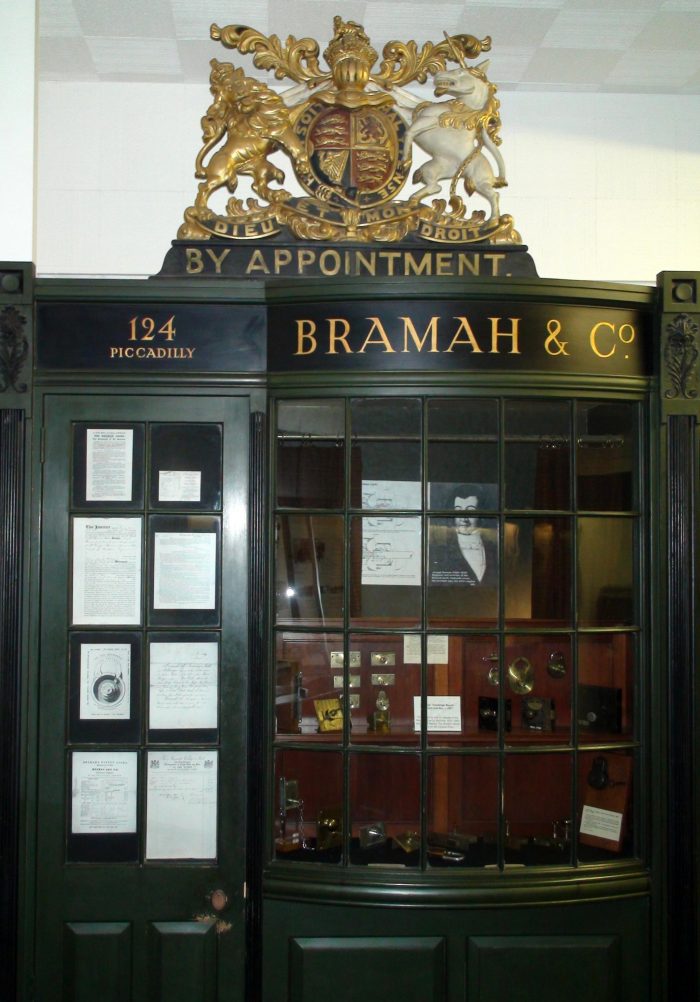
Recreation of Bramah’s shop front at 124 Picadilly, London, taken from the Science Museum in London. Note the absence of the ‘Challenge Lock’ in the window; this has now been moved to an alternative display case. Photo courtesy of Bramah.com/au
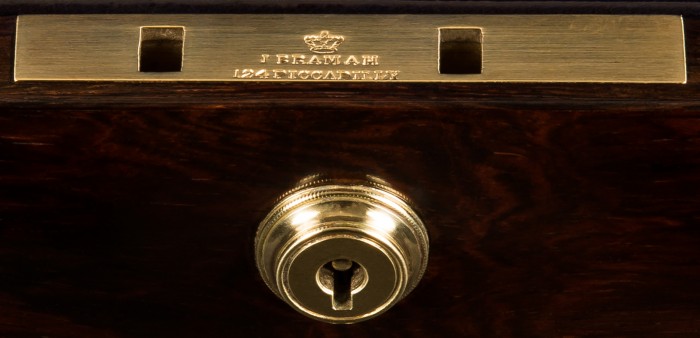
Bramah lock stamped, ‘J. Bramah – 124 Piccadilly, London’.
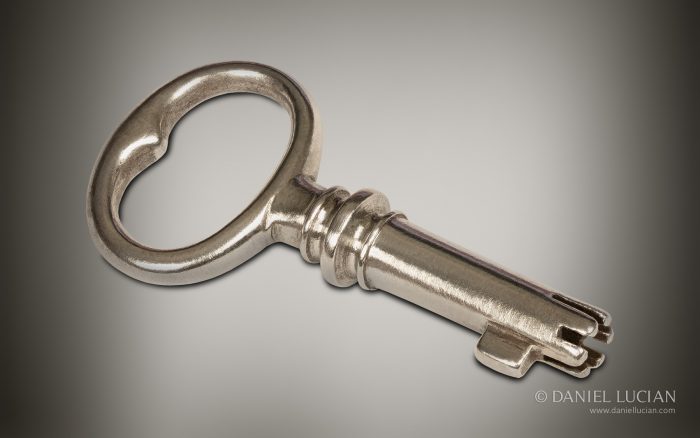
Antique Bramah key.
Bramah, Prestage & Ball
In 1836, Francis Bramah’s son, Francis junior joined up in business with John Thomas Prestage to specialise in iron and brass foundry. Branching off from the firm of Bramah & Sons, their business was named Bramah & Prestage, and shared the 124 Piccadilly address along with a further location at 25 Down Street. They were joined by locksmith William Ball around 1840, and the business name was changed to Bramah, Prestage & Ball. In addition to iron and brass foundry, they also manufactured Bramah Patent locks, dressing and travelling cases, and a wide assortment of stationery and travelling accessories.
Although Francis junior died in 1841, only a year after his father, the business continued retaining the same name.
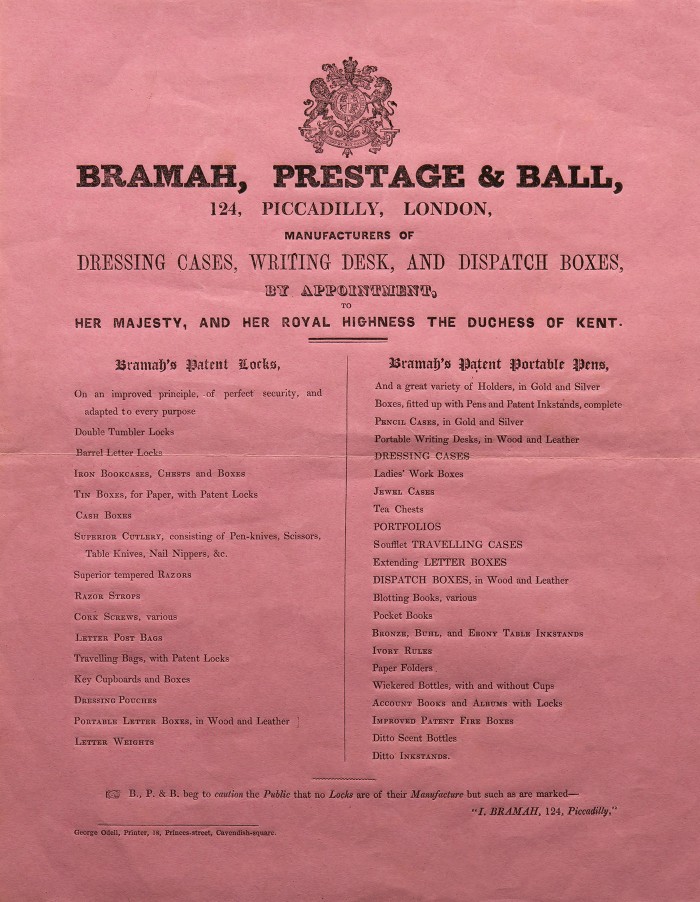
Bramah, Prestage & Ball advertising literature.
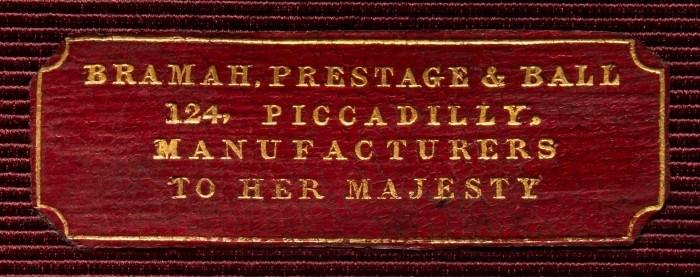
Bramah, Prestage & Ball manufacturer’s label from an antique jewellery box in rosewood.
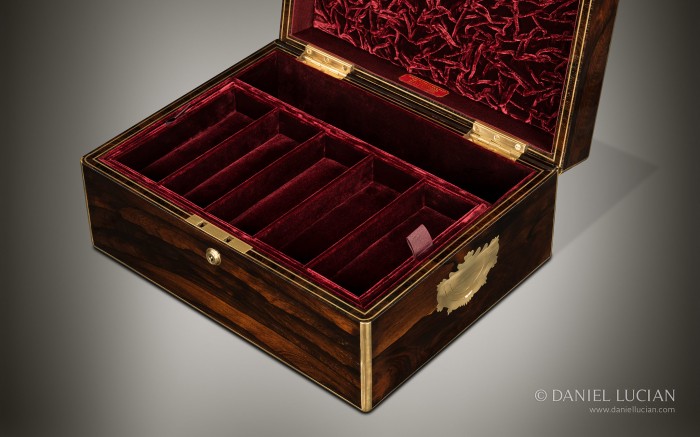
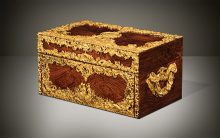 Price On Application
Price On Application